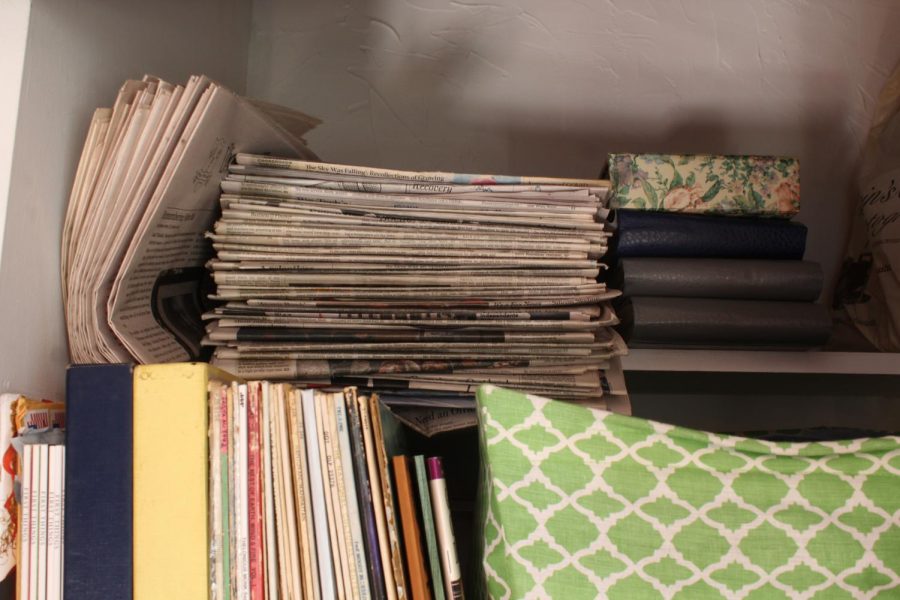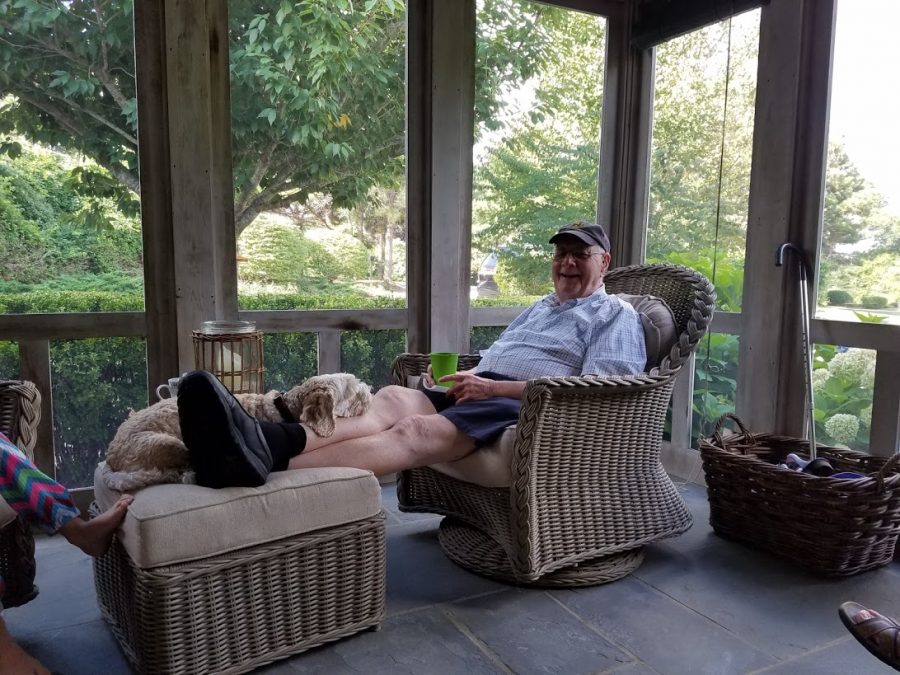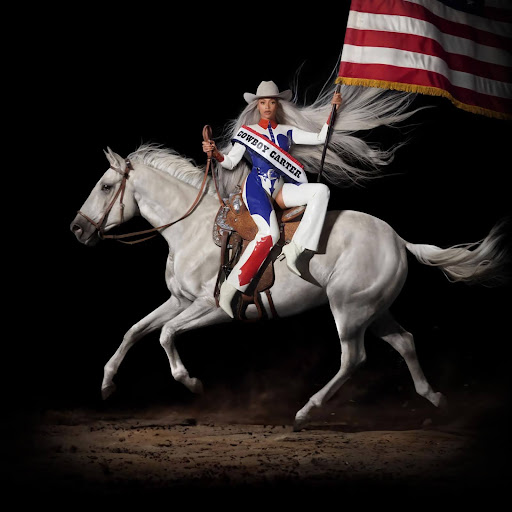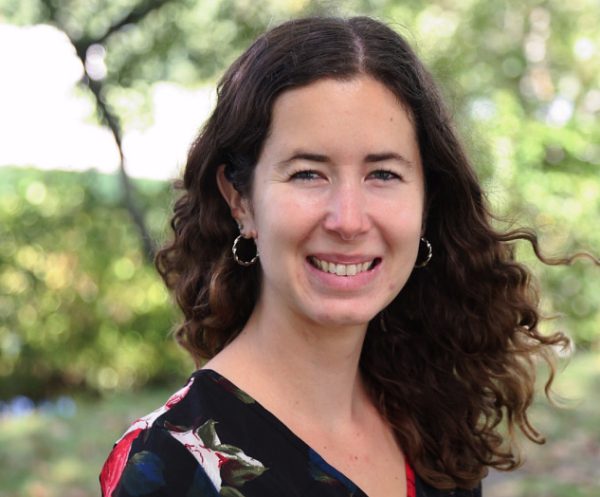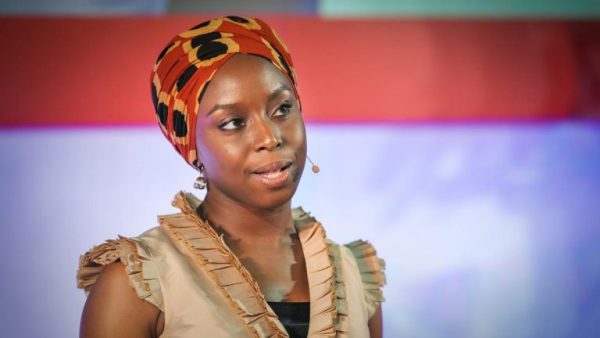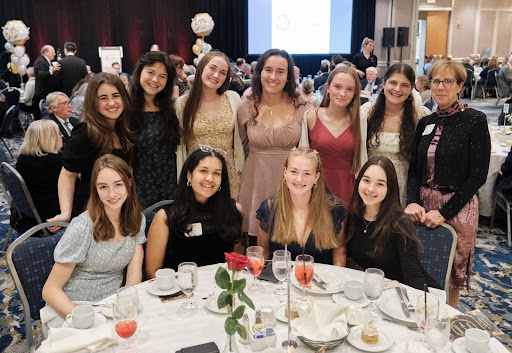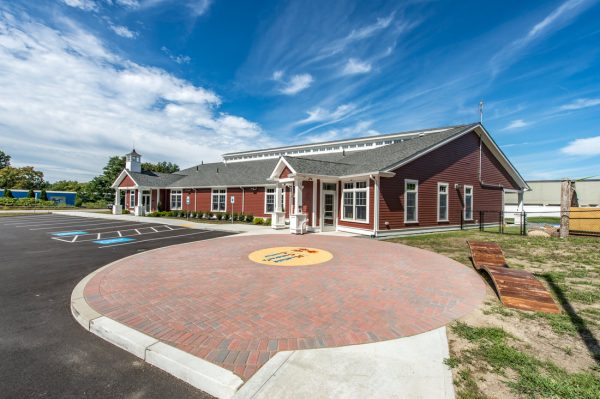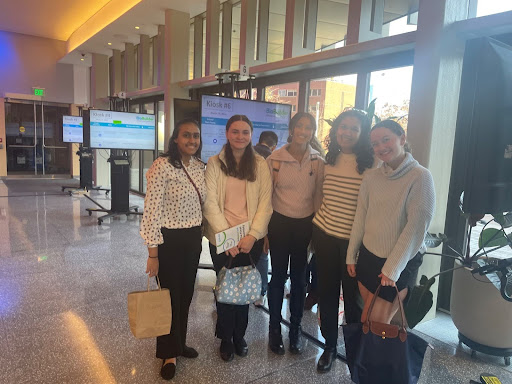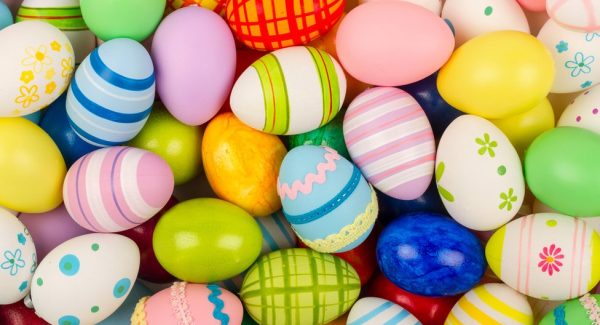Remembering Poppy
Tucked into a shelf in my closet, you can find a big stack of newspapers sitting in a neat pile.
There’s editions from The Wall Street Journal, The New York Times, The Boston Globe…but mostly The Wall Street Journal.
The newspapers are from my grandpa. Over the past few years, the stack has grown bit by bit, one edition stacked upon another and another.
My grandpa loved newspapers. He never grew tired of them. Three years ago, when he found out I was becoming interested in current events and the workings of the world, he started giving them to me. Every time I opened one up, it never felt stiff. It was crisp. The pages gave way a little bit easier, drooped a little bit more when you held them up, breathed a little bit easier. The edges were uneven from being folded back together.
I always felt comfort in this. Knowing that my grandpa had already held the pages, read the words, taken in the day’s snapshot of the world. The big gray pages had already been shuffled and turned. No matter what I read, I held onto the belief that everything in the world would still turn out alright. Because no matter what I read, Poppy had already read it, and things were still okay.
There are some people who live such long, adventurous, and deeply loving lives that you can never put them in a box. You can’t explain them in a timeline or a list of labels. You can only explain them in the things they loved and the stories they left behind.
And when it comes to my grandpa, there are lots of stories to tell.
When you walk into my grandparents’ house, the first thing you see is the kitchen table. That round wooden table is well-loved. It’s dark, like maple syrup, and decorated with little scrapes and scratches here and there, each one a story within itself. This is the little table where my Nana and Poppy raised eight children. And it’s the table where 20 grandchildren have spent so many Christmases and Thanksgivings and birthday celebrations.
When I think of my grandparents’ kitchen, two images naturally come to mind. In the first one, my grandpa is sitting at the table in front of a big birthday cake with his glasses reflecting bright shining candles. Everyone is smooshed into the room around him, and the youngest grandkids like me are jostling to stand next to Poppy. The air is full of warm laughter, voices on top of voices, and camera flashes.
In the second one, my grandpa is sitting at the same table, but he’s alone. A mug of tea with milk and sugar sits on the table. His hands hold the edges of a Wall Street Journal fanned open to the “World News” or “Business & Finance” section. His big glasses are pushed up the bridge of his nose, and his eyebrows are slightly raised as he reads the page. Line after line after line.
When I think of my grandpa, I think of the round wooden table in my grandparents’ kitchen — the place where so many stories have been told and so many memories have been shared. I think of plain jelly sandwiches on whole wheat bread that he used to cut into squares for me on a clear glass plate. I think of thick slices of lasagna with cheese that stretches and sticks to your fork and the roof of your mouth. I think of vanilla ice cream and the sound a spoon makes when you slide it along the bottom of a ceramic bowl to catch every bit of sweetness you can. I think of spooning sugar into tea, smoothing butter onto warm Irish bread, and the smell of all of the birthday candles he let us blow out for him.
It’s been three years since my grandpa had his first stroke. Three years of uncertainty, three years of patience, three years of prayer. Three years of more strokes, hospital updates, and rehabilitation centers. Every time I’ve said goodbye to him after a visit during these last three years, I’ve thought to myself, this could be the last time I see Poppy. Sometimes, it felt more real than other times. Sometimes, my dad would remind us just in case. But every time, I felt the same familiar pang inside of me. This could be the last time I see Poppy. I thought I’d grown numb to it. I thought I was able to grow up and reconcile with that thought in my mind after having so many times to practice. But in truth, I really never did. I don’t think anyone does.
All I did was hug him a little bit tighter and smile a little bit brighter whenever we said our goodbyes. “God love yah, sweetheart,” he’d say without fail, gripping my forearms while looking me in the eye.
What I wouldn’t give to hear him say that one more time.
On a Wednesday morning in the beginning of September, my parents took my little brother and I to say goodbye to Poppy. My older siblings had already said their goodbyes before they left for college. So it was just the four of us, my parents and my little brother and I, taking the familiar car ride to his house. I can’t remember what we talked about or how exactly I felt. I just remember feeling something in the air, something in my mother’s voice when she woke us up that morning, something in the spaces between my parents’ words and the way they looked at us. Something telling me that things were different this time. I knew that this really was going to be the last time.
Saying goodbye to Poppy felt as if all of those little pangs that I collected over time came washing over me at once, leaving a heaviness in my heart in their wake. Suddenly, everything felt so much more real. The words I said, the way I stood, the place where I let my hands lay. Every detail was fixed into my mind. I return to them again and again.
I remember the last time I saw Poppy before the pandemic began. It was a Friday evening in early March, and after greeting him with a hug and asking him how things were going, I told him about how I had won the American Legion speech contest, and that I was headed to nationals around Easter time. I could have just as easily told him that I’d scored my first goal in a soccer game, or that I had finally learned to parallel park — it didn’t matter. His face lit up as soon as he saw how happy his granddaughter was, and he was proud.
My grandpa had a beautiful way of naturally mirroring people’s emotions in a way that made us feel so loved and heard. If we seemed stressed or tired, he would look at us with concern. If any of his little grandkids seemed to be up to mischief, his observant eyes would brighten up and he would give us a familiar knowing look. And if we had good news to share, he would always listen to us and smile at us so joyfully.
And to the end, my grandpa kept his memory. He could answer every history- or geography-based Jeopardy question known to man. He could explain the background of hundreds of historical conflicts or situations that had piqued his interest at some point and stuck with him forever. His mind was a world map pinned with thousands of colorful notes and connecting threads from place to place, and he could remember every bit of it.
But the real meaning behind Poppy’s memory wasn’t about how impressive it was that he could keep track of so many of the names and facts. The best part was that everything he shared, everything he referenced and recalled, was always informed by stories. Everything looped back to his experiences in the Army during World War II, someone he met while serving as a policeman in Boston for decades, the hundreds of historical books he’d read in his lifetime, and the endless conversations he’d had with people from around the world.
How lucky I am to have been a part of his story, and to have him as a part of mine.
Poppy always kept our Christmas cards hung up in the kitchen, and loved looking at them whenever he liked. He had stories to tell, so many stories to tell, about each of the faces on those Christmas cards.
Sometimes, I wonder about which memories of Poppy I’m going to keep, and which ones will fade away. Will I remember all of the jelly sandwiches, and conversations over lasagna, and the vanilla ice cream he always had in his freezer? Will I remember all of the weekly Sunday dinners and playing games in the backyard with my cousins until the sun went down?
But then the two images of Poppy in the kitchen come back to me, and I realize that I’ll never forget them. I might forget the little conversations, or different details about the figures in history that decorated his stories and conversations with us. But I won’t forget who he was, and the way it felt to be so loved by him.
I still have that stack of newspapers in my closet. It’s sitting next to all of the Looking Glass print editions from the last few years and some photo albums from my parents. I often dig through the pile of newspapers to find an interesting edition to read. Sometimes I’ll pick The New York Times, or The Boston Globe. But mostly The Wall Street Journal.
Maevis Fahey ’21, Editor-in-Chief
21mfahey@montroseschool.org

